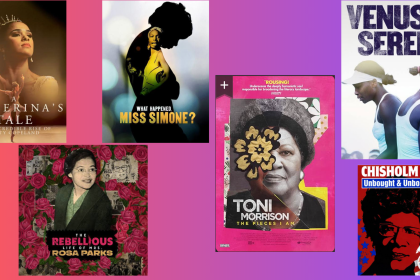
When Sheila McCauley Keys sat in her fourth grade class one day, she instantly recognized a familiar face in the textbook. It was Auntie Rosa. But that isn’t how the teacher referenced her father’s sister. She told the class the lady’s name was Rosa Parks, a courageous figure in the Civil Rights Movement specifically, the 1955 Montgomery Bus Boycott. When Keys told her classmates it was her aunt, no one believed her.
This hero, as the teacher referenced her, was “the lady who wouldn’t give up her seat on the bus” and spawned the national protest that ended at the U.S. Supreme Court.
Humble and unassuming, Auntie Rosa simply said, “Well, yes,” when an eager Keys asked her if she was really the lady who created this rich legacy and made it into history books.
Rolling out had the pleasure of meeting Keys, the icon’s seventh niece, the day before what would have been her 102nd birthday, which is Feb. 4. Here, she shares her fondest memory of Parks and the inspiration for the book titled, Our Auntie Rosa: The Family of Rosa Parks Remembers Her Life and Lessons. This intimate portrait showcases a collection of never-before-seen photos, letters, recipes, motivating quotes and family stories pay tribute to Parks.
Why were you motivated to share your family’s story?
What inspired me to gather all the information from family members was after my aunt and surrogate mother passed away in 2005, I felt our history was being held in limbo because we’re not a part of the foundation, Raymond and Rosa Parks Institute, which is run by a non-family member. My family and I agreed we should write a book.
I met with [co-writer] Eddie B. Allen Jr. who was able to cull the list of memories of Auntie Rosa gathered from 21 family members, including my 10 of 13 siblings, into a narrative. I love it.
It is my hope it will be a part of the library in Detroit Public Schools to inspire generations to come.
What is your fondest memory of Rosa Parks, whom you affectionately call Auntie Rosa?
My father [Sylvester McCauley] passed away in 1977; my mom [Daisy] passed away in 1981. I was in my 20s. In 1982, I gave birth to my son, Terrence. My aunt was traveling, doing speaking engagements and came to stay at my home in Irvington, New Jersey, for a week. My son was a month old and it was the best time I’d ever had with my Auntie Rosa. It was so nice. She just held my son.
We sat in our pajamas drinking Rose Hips tea. We swapped many stories including how we overcame our bullies. I remember; she paid me the best compliment ever. She received a call from someone who had tickets to “Dreamgirls” on Broadway. They offered her complimentary tickets and a car service to the show. She graciously declined saying in her calm voice, ‘No, thank you. I am fine where I am.’ My eyes were big. I couldn’t believe it.
For five days, we spent quality time together. She cooked for me. She was my mother and my father. She was supportive when I moved back to Detroit after my divorce. She was supportive in my son’s life. She attended his graduation and graduation party.
She was caring toward each and every one of my siblings … attending every function, reunion and picnic. We’d all sit around her because she was our matriarch.
What do you want readers to gain from this book?
With this book, we hope readers will be introduced to Rosa Parks the woman. It took me awhile to wrap my arms around Rosa Parks the icon. There is a difference. Both are important. Once you get to know the woman, you will love the icon just a little more. There is so much more to her. There was a mother deep inside. One of the most important things she instilled in us is the golden rule: “Treat your fellow man as you want to be treated.”

















